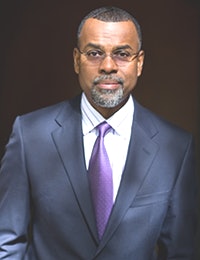 Dr. Eddie S. Glaude Jr., says “that Princeton has made African-American studies an essential part of the education of its students.”
Dr. Eddie S. Glaude Jr., says “that Princeton has made African-American studies an essential part of the education of its students.”Princeton University is one step closer to offering an undergraduate major in African-American studies.
Last week, the faculty at the Ivy League school voted to departmentalize the Center for African American Studies (CAAS), which has granted undergraduate and graduate certificates since 2006.
“When we formed as a center, it was in the documents that we would reconsider and take up the issue of departmentalization five years out,” said Dr. Eddie S. Glaude, Jr., the William S. Tod Professor of Religion and African American Studies and the chair of the Center for African American Studies at Princeton. “One of the most important aspects of this moment is that Princeton has made African-American studies an essential part of the education of its students. It’s been a long time coming, but we are here.”
The faculty vote comes nearly three years after an external review of the center, which was led by Dr. Deborah McDowell, the Alice Griffin Professor of English and director of the Carter G. Woodson Center at the University of Virginia. McDowell and two other members of the committee recommended that the center be converted into a department and that the university begin offering a major.
Princeton’s Board of Trustees still has to approve the measure.
Currently, CAAS has 15 professors, with most of its faculty holding joint appointments with other academic departments such as history, English and political science. Four faculty, including Drs. Imani Perry, Naomi Murakawa, Keeanga-Yamahtta Taylor and Ruha Benjamin, have full-time teaching appointments in the center.
“We are hiring still,” said Glaude. “People have talked about the departures, but we’ve been able to put together a young cohort of scholars. It’s not about the superstars; it’s about the work. And it’s exciting the see the work happening here.”
Still, Princeton — unlike many other institutions — has been successful in attracting well-known Black scholars over the years, such as Drs. Cornel West, Nell Painter, Albert J. Raboteau and Melissa Harris-Perry. And though discussions about an African-American studies major started many years ago, the university has lagged far behind its competitors in offering an undergraduate degree.
Harvard, Yale, the University of Pennsylvania and Cornell, for example, have offered an undergraduate major in African-American studies for several decades now.
Although Princeton does not allow its students to double major, the undergraduate certificate program (which is equivalent to a minor at other universities) and the courses offered by CAAS are among the most popular at the school.
Glaude said that sustained student protest and pressure over the years likely helped to generate support among the faculty. Even as some Black studies programs across the nation have been withering, he said that Princeton’s support for departmentalization is a sign that the field remains vibrant.
In the wake of protests and a new wave of activism following the deaths of several unarmed Black men, Glaude said that the study of Black lives remains important.
“It makes all the sense in the world to me that we do this now under these circumstances,” he said.
Jamal Eric Watson can be reached at jwatson1@diverseeducation.com. You can follow him on Twitter @jamalericwatson.


















